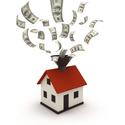In less than two weeks, when Barack Obama’s lead in all the polls is likely to be confirmed in the voting booth by the American electorate, millions of words will be written about why he won and how John McCain managed to lose. Unfortunately, marketing executives and corporate leaders have ignored some of the most important lessons from the campaign. read more »
Economics
Obama’s Marketing Message
- Login to post comments
The Entrepreneur is the True Face of Capitalism in America
“Joe the Plumber” has gotten a lot of media attention over the past week. Depending on which side of the political fence you’re on, he is either a phony who is not even a registered plumber or a symbol for the unintended consequences of wealth redistribution policies. A Rasmussen survey taken on October 19th showed “Sixty-nine percent (69%) of Democrats think [Obama] is right on [spreading the wealth], but 78% of Republicans disagree.” read more »
The biggest issue remains undecided
Unless something completely unexpected occurs, the presidential election has been settled, with Barack Obama the clear winner. Yet, except for the Republican Party’s demise, the most important issue of this era — the future of the middle class — remains largely unaddressed.
Indeed, even as social polarization has diminished — a change that is reflected in Obama’s electoral success — economic polarization has intensified. Globalization and the securitization of almost everything have created arguably the greatest concentration of wealth since before the Great Depression. read more »
- Login to post comments
The middle class is key to any city’s future
What are your favorite cities in the US and abroad? Chances are you like cities for their vibrancy, diversity, people, foods, smells, sights, sounds, and opportunities for work, learning, play and life.
These cities can only exist with vibrant middle classes to do the work, pay the taxes, and sustain life (including birthing the kids that are the city’s future). read more »
- Login to post comments
Turns Out There's Good News on Main St.
As the financial crisis takes down Wall Street, the regular folks on Main Street are biting their nails, watching the toxic tsunami head their way. But for all our nightmares of drowning in a sea of bad mortgages, foreclosed homes and shrunken retirement plans, the truth is that the effects of this meltdown won't be all bad in the long run. In one regard, it could offer our society a net positive: Forced into belt-tightening, Americans are likely to strengthen our family and community ties and to center our lives more closely on the places where we live. read more »
Beyond The Bailout: What’s Next in the Housing Market?
The Emergency Economic Stabilization Act of 2008 (we’ll call it the “Bail Out”) was signed into law on October 3rd. This, combined with the new reality in capital markets and current economic conditions, will result in some major shifts in the outlook for housing over the next few years. It is always possible that the federal government will try to do even more to fix what will be an agonizing housing problem over the next few years, but seems unlikely even Bernake, Paulson or their appointed successors will be able to change the basic story line. read more »
The Geography of Inequality
The global financial crisis has drawn greater attention to the world of the super rich and to the astounding increases in inequality since 1980, returning the country to a degree of inequality last seen in 1929 or perhaps even 1913. In the year 2006 alone, Wall Street executives received bonuses of $62 billion. Financial services increased from 10 percent of all business profits in 1980 to 40 percent in 2007, an obscene and indefensible development that now threatens the rest of the ‘real economy’.
Here’s what happened to income and wealth between 1970 and 2005 read more »
Gas boom ripples through Pennsylvania economy
Almost 150 years after Colonel Edwin Drake drilled the country's first commercial oil well in Western Pennsylvania and transformed Pittsburgh into a manufacturing powerhouse, a huge natural gas field could be about to rescue this region's sluggish economy from its post-industrial death spiral. read more »
- Login to post comments
The American Dream: Alive and Well (Some Places)
Even after the burst of the housing bubble, the American Dream of home ownership has remained alive in some places. As it turns out the “bubble” was far from pervasive, and as Nobel Laureate Paul Krugman indicated in The New York Times, the housing price increases were largely limited to the areas of the nation with stronger land use regulation.
In all, at the peak of the housing bubble, 46 of 129 US markets had house prices at or below the historic ceiling of three times household incomes (see 4th International Demographia Housing Affordability Survey. Before the bubble, nearly all markets were at or below that norm, but many have risen to double, triple or even more than three times the standard. read more »
Resources and Resourcefulness – Welcome to The Real Economy
The orchard-laden foothills of North Central Washington’s Wenatchee Valley are resplendent at this time of year. The apple and pear harvest is in full swing. The warm golden hues, the crisp mountain air and the bustle of trucks carrying produce to markets near and far provide a stark and welcome contrast to the daily barrage of bad news about the downward spiral of the nation’s financial markets. read more »
- Login to post comments




















